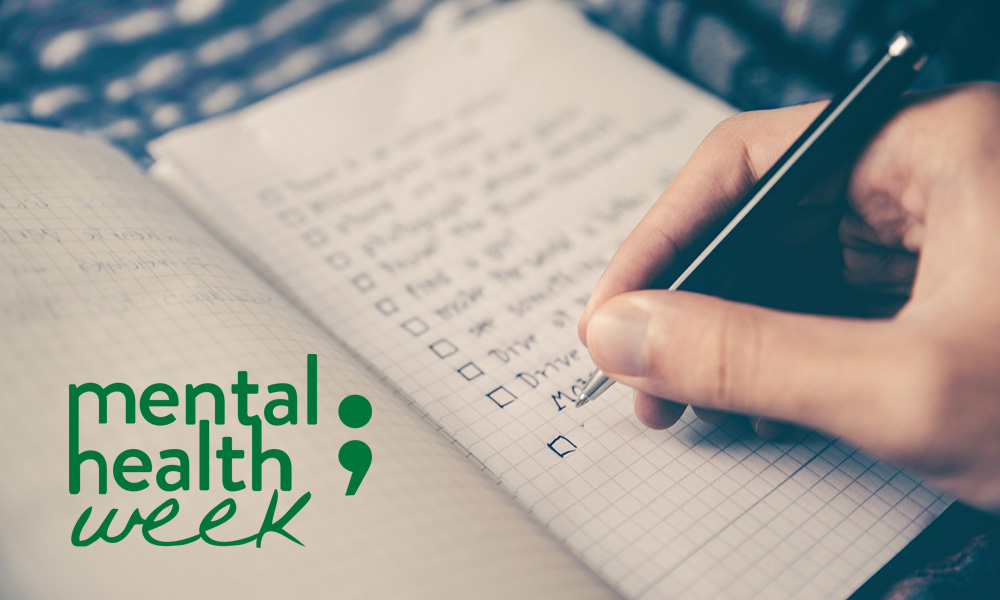Setting goals is important as a student but oftentimes the larger goals in a student’s life, like completing an assignment worth 50 per cent of the unit or studying for exams, can become too much to handle. Doubt and anxiety can quickly take a hold of an individual and may even cause some students to lose confidence in their ability to accomplish a task that, from their perspective, has become impossible.
Not all goals should be as big as the ones assigned to you at university however. Some goals can help students manage and cope with the larger anxieties and fears they may have towards their studies.
While talking to friends and family, getting sleep and doing the things you enjoy can help to alleviate your mind of mental burdens, setting short-term goals can help students overcome the pressures of academia while also raising one’s level of confidence in tackling big tasks. Because only by completing small goals can we learn to build ourselves up and take out the bigger goals in life.
Running
There’s just something about running that makes you feel like you can accomplish anything. By setting a distance that you can knock out and then increasing from that distance over time, students can certainly begin to feel more in control of the goals in their life. Complete a kilometre one week and then increase that by another 500 metres the next week (or however much you feel like going up by).
In addition to feeling like you can exert more control over the short-term goals in your life, you’ll also have the added benefit of being outdoors to clear your mind and to improve your physical wellbeing (something that is neglected all too often when students are stressed). The added bonus of running with a companion can also be therapeutic in itself. So create your own finish line and take control over your mind and body by running!
Gardening
Many feel gardening is a great avenue to promote positive mental health. Aside from the fresh crop of food you might be growing in your backyard or your balcony, experts say that gardening can improve one’s mental health by allowing people to become nurturers and carers. By being connected to something that you’ve personally seen grow over time, individuals are given a sense of responsibility to their plants. They want to care of it and are happy when their plants flourish.
Gardening is simple and easy to get into — start small with a potted plant and ensure that the seeds are given plenty of water and sunshine. Over time, you’ll see that with enough care your plant will grow beautifully. If you find that you want to do more than just grow something out of a pot, consider joining a gardening community where you can meet new people and help take care of plants in a bigger garden. So rather than stay indoors, get outside and start learning more about how nature can help you!
Model building and puzzles
Fight stress by activating another part of your brain! Setting small goals in the form of completing a puzzle or building a model (perhaps a Lego model or a Gundam model) can not only be fun but can definitely take the mind off larger tasks that loom ahead.
While some may say that following instructions or finding the right pieces can cause more frustration, setting time aside to work towards something without major consequences will no doubt give you a sense of accomplishment and may even boost your confidence. Use that momentum to move forward and kick even more goals!
Moreover, students can complete these creative activities with the company of their friends! But perhaps what’s most important is that by building models and completing puzzles, students will learn the value of patience which is a virtue all students should have.
Baking and cooking
For some, baking and cooking is therapeutic in its own way. Like gardening, individuals are given a sense of responsibility to what they make. If they fail the first time, don’t let that deter you. Give it another try and keep going again and again until you get the recipe or meal the way you like it.
Baking and cooking does require preparation and will train you to be more organised with your time, manage your resources and perhaps even manage others if you enlist the help of your friends in preparing food. Start with learning how to cook one of your favourite dishes or food items and keep at it until you get it the way you want it. It might be a bit costly each time but at least you can say you’ve learned how to cook!
Meld wishes to build a culture where mental health issues can be freely discussed and encourage all international students to seek assistance and advice, professional or personal, if they are experiencing difficulties that may be affecting their mental health.
Students who are affected by mental health issues or those who know someone who is can seek help through hotlines such as Lifeline at 13 11 14, beyondblue at 1300 22 4636, and Headspace at 1800 650 980.
For LGBTQ individuals who have specific needs, contact QLife at 1800 184 527.
Students may also seek help from in-house university counsellors or helplines.





